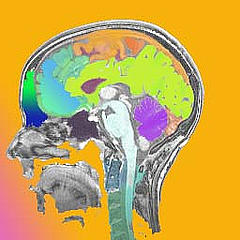Unusual Symptoms Following Concussions
If you suffered a concussion and you manifest unusual symptoms, such as vertigo or migraines, 7 to 10 days after your accident, there is a good chance you are experiencing post-concussion syndrome (PCS). Those symptoms may not subside for months or perhaps for more than a year after the incident.
One of the symptoms of PCS is migraine headaches or tension headaches. The difference is that tension headaches, which are the most common type of headaches, are a widespread pain that is more mild to moderate. Migraine headaches cause a much more intense pain that throbs and is located in single part of the brain.
One of the misunderstandings of concussions is that a person has only sustained them if they have been knocked unconscious, but that it not true. The truth is that not only does a person not have to be knocked unconscious in order to have sustained a concussion, but a person doesn’t even have to have hit their head in order to have sustained this mild traumatic brain injury. This injury can even happen in the unfortunate event that a person is violently shaken.
PCS and your Neck
In the aftermath of that injury, if post-concussion syndrome follows, it is usually caused by an upper neck injury. That injury caused an irritation to the nerves in the brain and spinal cord that can trigger neurological pain. That pain manifests itself in one of many different ways, including tension headaches or migraine headaches.
If a concussion sufferer shows signs of post-concussion syndrome, it is frequently because of an upper neck injury that caused irritation to nerves in the brain and spinal cord that can trigger neurological pain that manifests itself as one or more of various types of disorders, including tension or migraine headaches. Here are some other lingering symptoms of post-concussion syndrome.
To learn more about migraines download our free e-book below.
Symptoms of Post-Concussion Syndrome
- Irritability
- Anxiety
- Insomnia
- Headaches
- Dizziness
- Fatigue
- Poor concentration and memory
- Sensitivity to Noise
- Sensitivity to light
Your Neck and Post-Concussion Syndrome
It is impossible to suffer a head injury by itself. The head is connected to the neck and when the head is injured so is the neck. Misalignments in the upper neck are especially problematic. The brain and spinal cord come together at the level of the brainstem. Misalignments in this area can lead to dysfunction with the nerves, blood vessels and cerebrospinal fluid. Even long after your head has healed from your concussion your neck is likely to still be misaligned and causing lingering symptoms.
To schedule an upper cervical evaluation in our Apex office simply click the button below.


